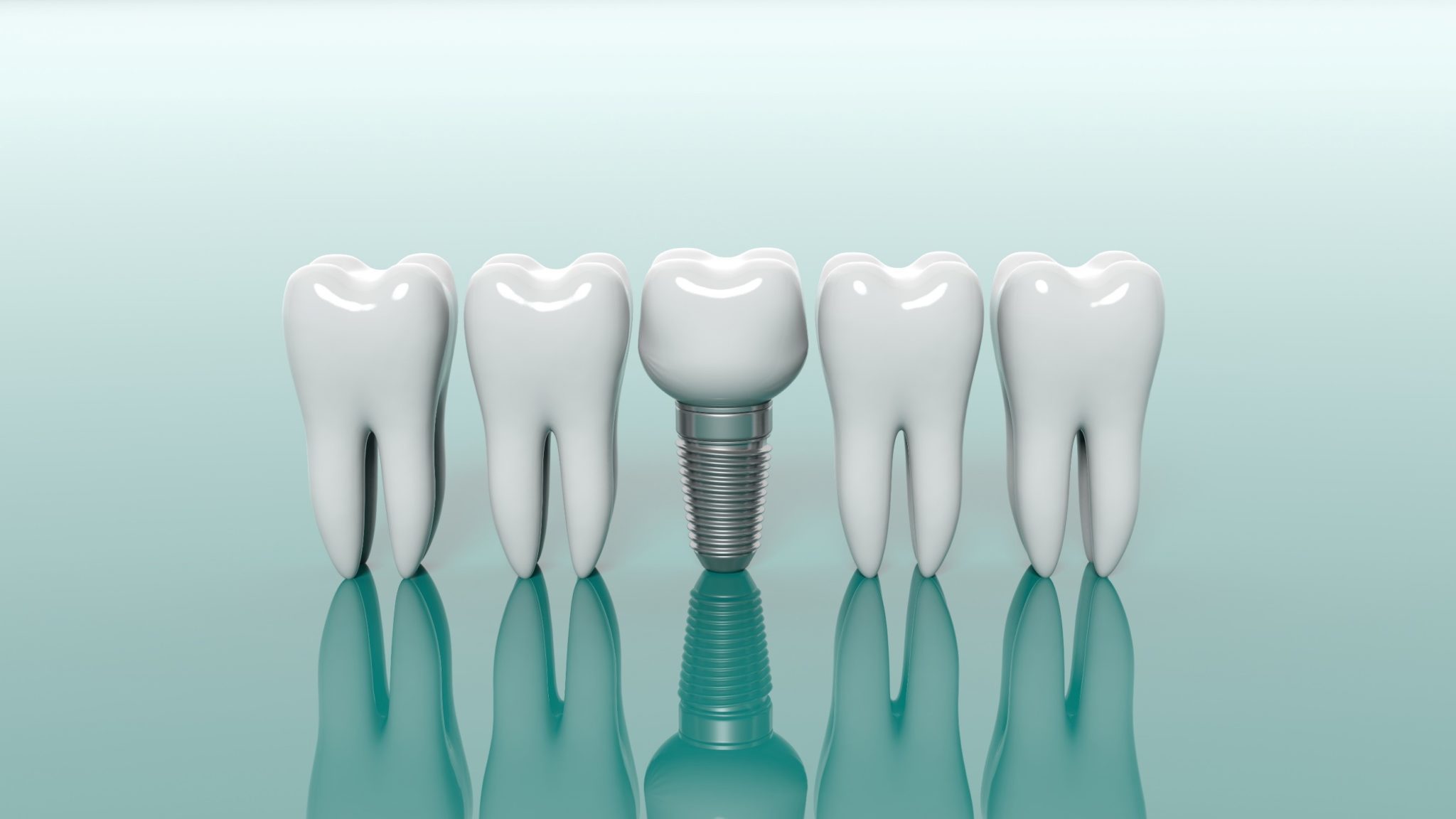A missing tooth can impact more than just your smile—it can affect your confidence, oral health, and overall well-being. Whether due to injury, decay, or natural wear, losing a tooth compromises both functionality and aesthetics. Thankfully, single tooth implants offer a durable, natural-looking solution that restores not just your appearance but also the stability of your mouth.
Joining 4smile provides individuals with essential dental health information, enabling them to make well-informed decisions about their smiles. Understanding the details of single tooth implants before making a decision is essential. We will explore how they work, their long-term benefits, and everything you need to know about this life-changing dental solution.

What Is a Single Tooth Implant?
A single tooth implant is a permanent dental solution designed to replace a missing tooth without affecting surrounding teeth. It consists of a titanium post that serves as an artificial root, topped with a custom-made crown to match natural teeth. Unlike removable solutions, a single tooth implant integrates with the jawbone, offering stability and longevity.
This implant mimics the function of a natural tooth, providing a strong foundation for chewing and speaking. Unlike bridges or dentures, it does not rely on neighboring teeth for support, making it a preferred choice for those seeking a durable, independent solution for tooth replacement.
Why Are Single Tooth Implants Important?
Losing even one tooth can lead to multiple oral health complications. A missing tooth can cause shifting of surrounding teeth, misalignment, and even jawbone deterioration over time. Single tooth implants prevent these issues by maintaining the structural integrity of the mouth.
Beyond health concerns, the aesthetic impact of a missing tooth can affect self-esteem. A complete smile enhances confidence and allows individuals to speak, laugh, and eat comfortably. Single tooth implants provide a long-lasting, natural-looking solution that improves both appearance and function.
/assets/production/practices/298d65fa4ff3c51f997e0084ef8fbc456c4ecb6d/images/2459808.jpg)
Understanding Tooth Loss and Its Impact
Tooth loss can occur due to various reasons, including trauma, decay, gum disease, or genetic factors. Regardless of the cause, missing a single tooth can disrupt oral function, making chewing and speaking more challenging. Over time, gaps left by missing teeth can lead to uneven pressure on remaining teeth, causing wear and misalignment.
Another significant consequence of tooth loss is bone resorption. When a tooth is missing, the jawbone no longer receives stimulation from chewing, leading to gradual bone loss. This can result in facial sagging and additional dental complications if left unaddressed. Single tooth implants help prevent these problems by preserving bone density and maintaining oral harmony.
The Anatomy of a Single Tooth Implant
A single tooth implant consists of three main components: the implant post, the abutment, and the crown. The implant post, typically made of titanium, is surgically placed into the jawbone to serve as an artificial root. Over time, it fuses with the bone through a process called osseointegration, ensuring stability.
The abutment connects the implant post to the custom-made crown, which is designed to blend seamlessly with surrounding teeth. This three-part structure closely mimics a natural tooth, providing both functional and aesthetic benefits. The result is a strong, permanent replacement that feels and looks like a real tooth.

How Single Tooth Implants Differ from Other Options
When replacing a missing tooth, several alternatives exist, including dental bridges and removable dentures. However, single tooth implants stand out due to their long-term stability and independent nature. Unlike bridges, which require the modification of adjacent teeth, implants preserve natural tooth structure.
Dentures, while a common choice, lack the stability and bone preservation benefits that implants provide. They may also cause discomfort over time due to shifting or irritation. Single tooth implants, on the other hand, integrate with the jawbone, offering a permanent and secure solution that does not affect surrounding teeth.
The Science Behind Osseointegration
Osseointegration is the biological process that allows a single tooth implant to fuse with the jawbone, providing unmatched stability. When a titanium implant post is placed in the bone, cells begin to grow around it, anchoring it securely in place. This process typically takes several months but results in a foundation that mimics a natural tooth root.
Successful osseointegration ensures that the implant remains firmly in place for decades, allowing normal chewing, speaking, and smiling. This scientific advancement has made dental implants one of the most reliable and effective tooth replacement options available today.

The Role of Jawbone Health in Implants
The success of a single tooth implant depends heavily on the health of the jawbone. A strong, dense jawbone provides the necessary support for implant integration. If bone loss has occurred due to prolonged tooth absence, additional procedures may be required to enhance bone volume.
Maintaining good jawbone health through proper oral hygiene and a balanced diet supports the longevity of an implant. Regular dental check-ups also help monitor bone health and ensure that the implant remains secure and functional over time.
The Importance of Gum Health for a Successful Implant
Gums play a crucial role in supporting and protecting dental implants. Healthy gums create a stable environment for an implant, reducing the risk of complications. Conditions such as gum disease can compromise the implant’s stability and lead to failure if not managed properly.
Good oral hygiene, including brushing, flossing, and regular professional cleanings, helps maintain gum health and prolong implant lifespan. Avoiding tobacco use and excessive sugar consumption also supports overall gum well-being, ensuring a healthy foundation for a single tooth implant.

How a Missing Tooth Affects Surrounding Teeth
When a tooth is lost, the surrounding teeth can gradually shift toward the gap, causing misalignment. This can lead to bite problems, increased wear, and difficulty in cleaning teeth properly. Over time, these changes may contribute to further tooth loss and oral health complications.
Single tooth implants prevent these issues by maintaining the natural spacing of teeth. They act as a replacement that fills the gap while stabilizing neighboring teeth, preserving the natural alignment and functionality of the mouth.
Common Myths About Single Tooth Implants
There are several misconceptions about dental implants, including the idea that they are only for older individuals or that they are painful. In reality, implants are suitable for adults of all ages and are designed to provide long-term comfort.
Another myth is that implants require excessive maintenance. In truth, caring for an implant is similar to maintaining natural teeth—regular brushing, flossing, and dental visits ensure longevity and health. Understanding the facts about implants helps individuals make confident decisions about their oral care.

FAQs
How long does a single tooth implant last?
A well-maintained single tooth implant can last a lifetime with proper oral hygiene and regular dental check-ups.
Can a single tooth implant fail?
While rare, implant failure can occur due to poor oral hygiene, gum disease, or insufficient jawbone density. Proper care reduces this risk.
What foods should be avoided after getting a single tooth implant?
Hard, sticky, and extremely hot foods should be avoided during the healing period to prevent pressure on the implant site.
How do single tooth implants compare to dental bridges?
Unlike bridges, implants do not rely on adjacent teeth for support, preserving natural tooth structure and providing a longer-lasting solution.
What is the recovery time for a single tooth implant?
The initial healing period takes a few weeks, but full integration with the jawbone typically takes 3 to 6 months.
Conclusion
Single tooth implants offer a life-changing solution for those missing a tooth, providing both functional and aesthetic benefits. Their ability to preserve jawbone health, maintain alignment, and restore confidence makes them an excellent choice for long-term dental stability.
4Smile believes in the power of education when it comes to oral health. Learning about single tooth implants and their advantages empowers individuals to make informed choices for a healthier, brighter smile. A well-maintained implant can provide lasting benefits, enhancing both dental function and self-confidence.





1 Comment
I’m impressed, I have to say. Really hardly ever do I encounter a blog that’s both educative and entertaining, and let me let you know, you may have hit the nail on the head. Your concept is outstanding; the issue is something that not sufficient individuals are talking intelligently about. I’m very comfortable that I stumbled across this in my seek for something regarding this.